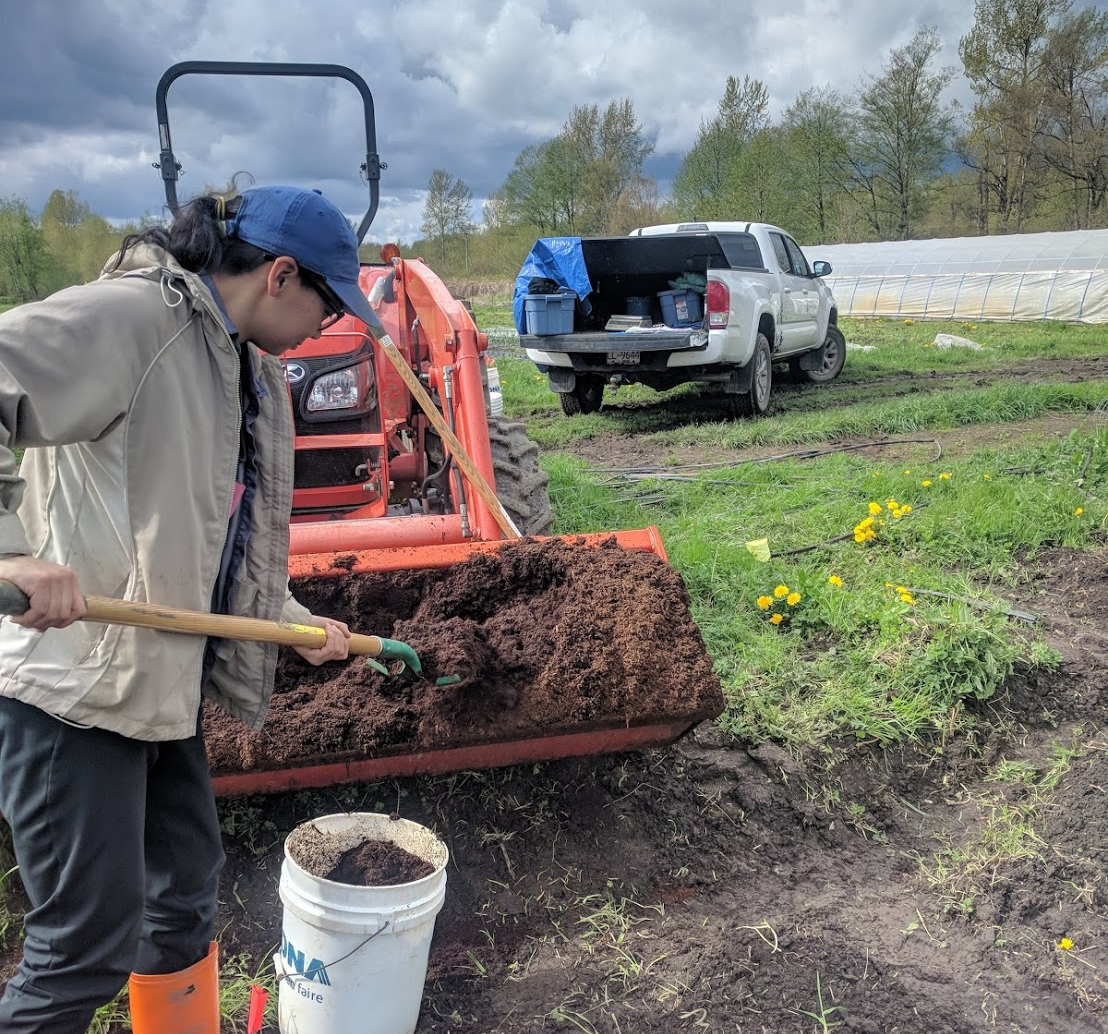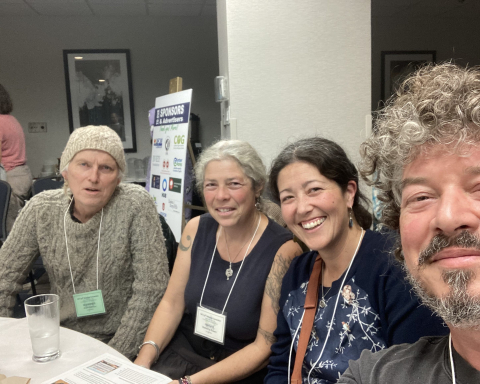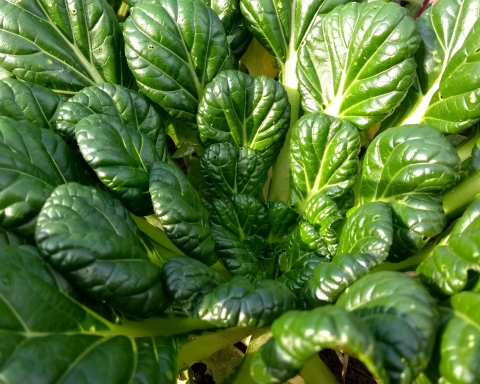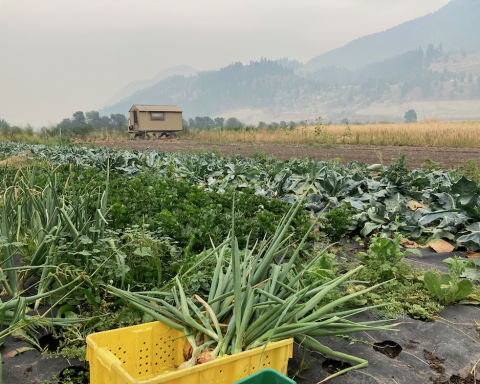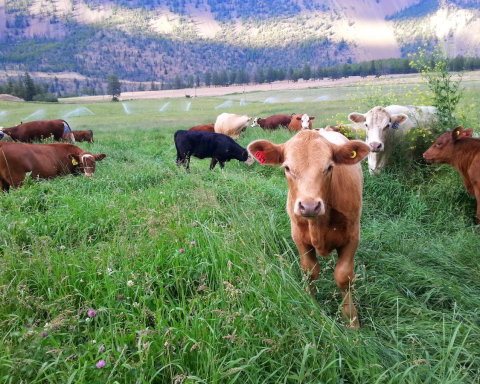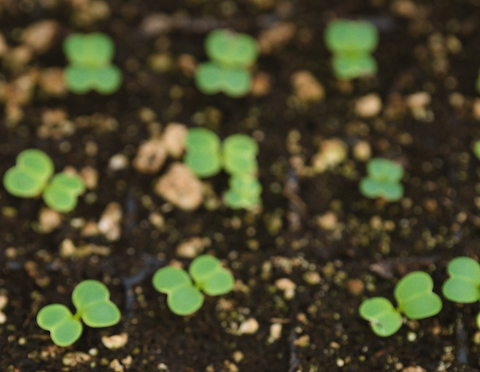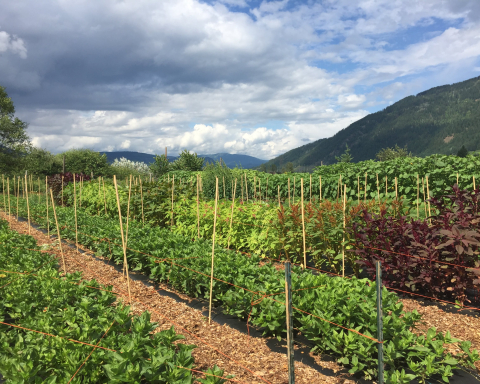Emma Holmes
The Sustainable Agricultural Landscapes (SAL) Lab at UBC’s Faculty of Land and Food Systems is taking a collaborative approach to research that supports producers in making management decisions that are science-based and regionally grounded.
I recently had the opportunity to catch up with Sean Smukler, DeLisa Lewis, Amy Norgaard, and Raelani Kesler from the SAL Lab to get an update on their Organic Vegetable Nutrient Management and Climate Resilient Vegetable Farming research projects.
Something that stood out to me, and that I feel is especially pertinent to this issue, is the mentorship and collaborative, on-farm approach the SAL Lab is taking. The research design includes two demonstration “mother sites” at UBC Farm in Vancouver and Green Fire Farm on Vancouver Island, as well as 20 “sister sites” on working organic farms in the Fraser Valley, Pemberton Valley, Vancouver Island, and the Kootenays.
The mother sites are controlled and replicated—they allow for the collection of scientifically rigorous data so that the researchers can tease out trends and gain a deeper understanding of how different elements in the system are interacting and impacting each other.
While a rigorous approach is important, it is very difficult to implement one on working farms because farmers are already trying to manage so much complexity in terms of crop rotation, timing, etc. Adding a full-blown research project with rigorous controls can take away from the primary goal of running a profitable business.
The sister sites are simpler experiments, without controls and replicates, that are done on multiple working farms in different regions of the province. They provide insights into regional and site variability, and allow us to see whether trends from the mother sites are true across different regions in BC The regional sister sites also create the opportunity for farmers to participate in the research by pointing SAL researchers to key practical challenges and unanswered questions.
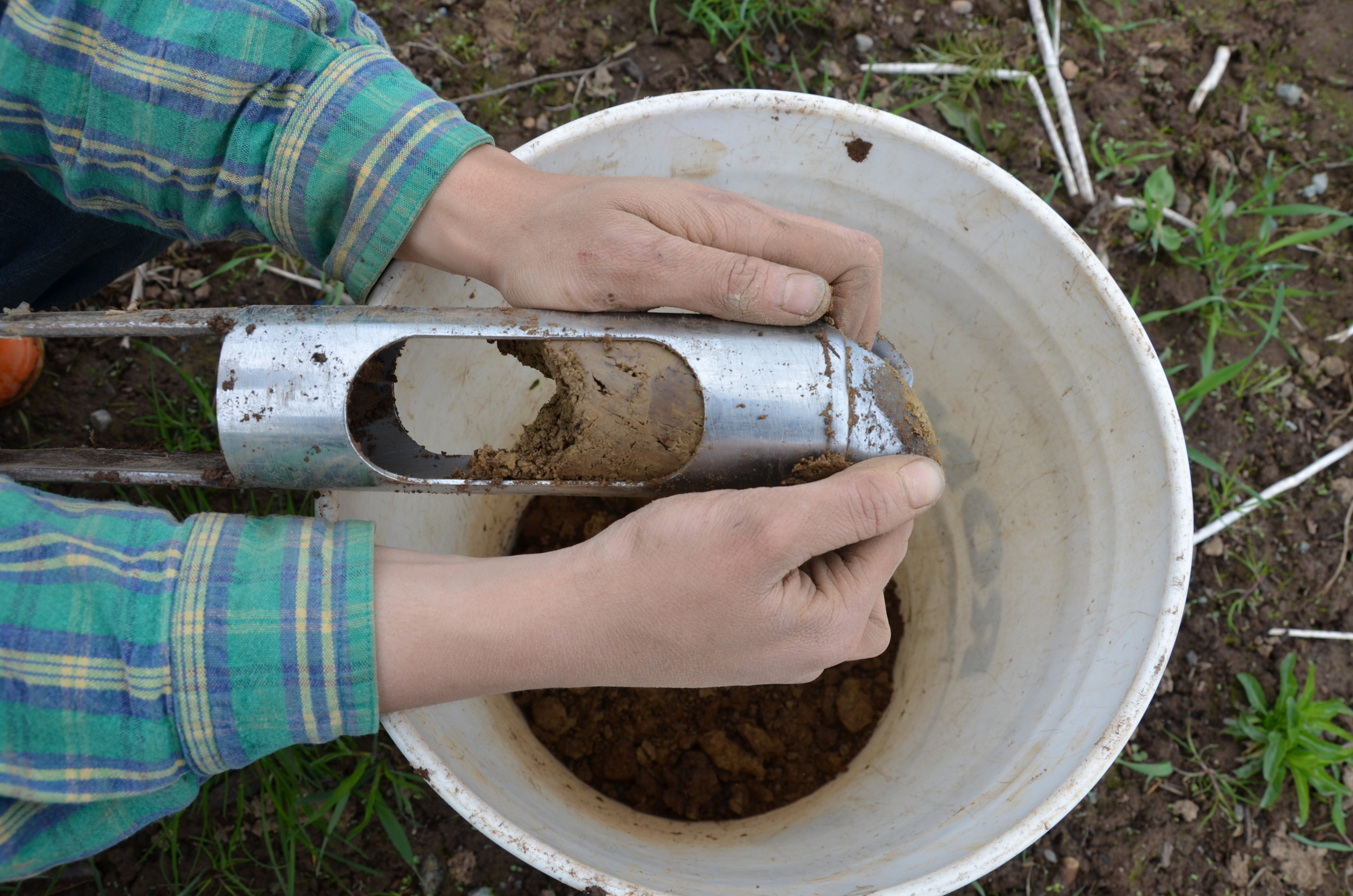
Organic Vegetable Nutrient Management
The SAL Lab recently shared the results from their two-year Organic Vegetable Nutrient Management Project regional field trials, where they assessed organic nutrient management strategies that are most likely to balance goals of crop production and environmental stewardship.
A key takeaway is the importance of regionally-specific nutrient management recommendations due to the big differences in soil types, availability, and cost of amendments. Taking soil tests and applying nutrients based on a farm-specific soil management strategy is important for land stewardship across all regions, but regional variances due to differing soils, climate, and access to and cost of amendments are important considerations.
For example, the abundance of nutrient-rich animal manures in the Fraser Valley increases the possibility of unintentionally over applying nitrogen (N) and phosphorus (P). This can result in post-harvest nitrate and phosphorous concentrations that can compromise well water quality and wetland health in the area, and are higher than what is permitted under BC’s new Agricultural Environmental Management Regulation.
There are also cost implications of over-applying nutrients. On Vancouver Island, where amendments are relatively expensive, targeted nutrient applications based on soil testing and matching crop nutrient demand can allow for significant savings compared to applying amendments without that knowledge.
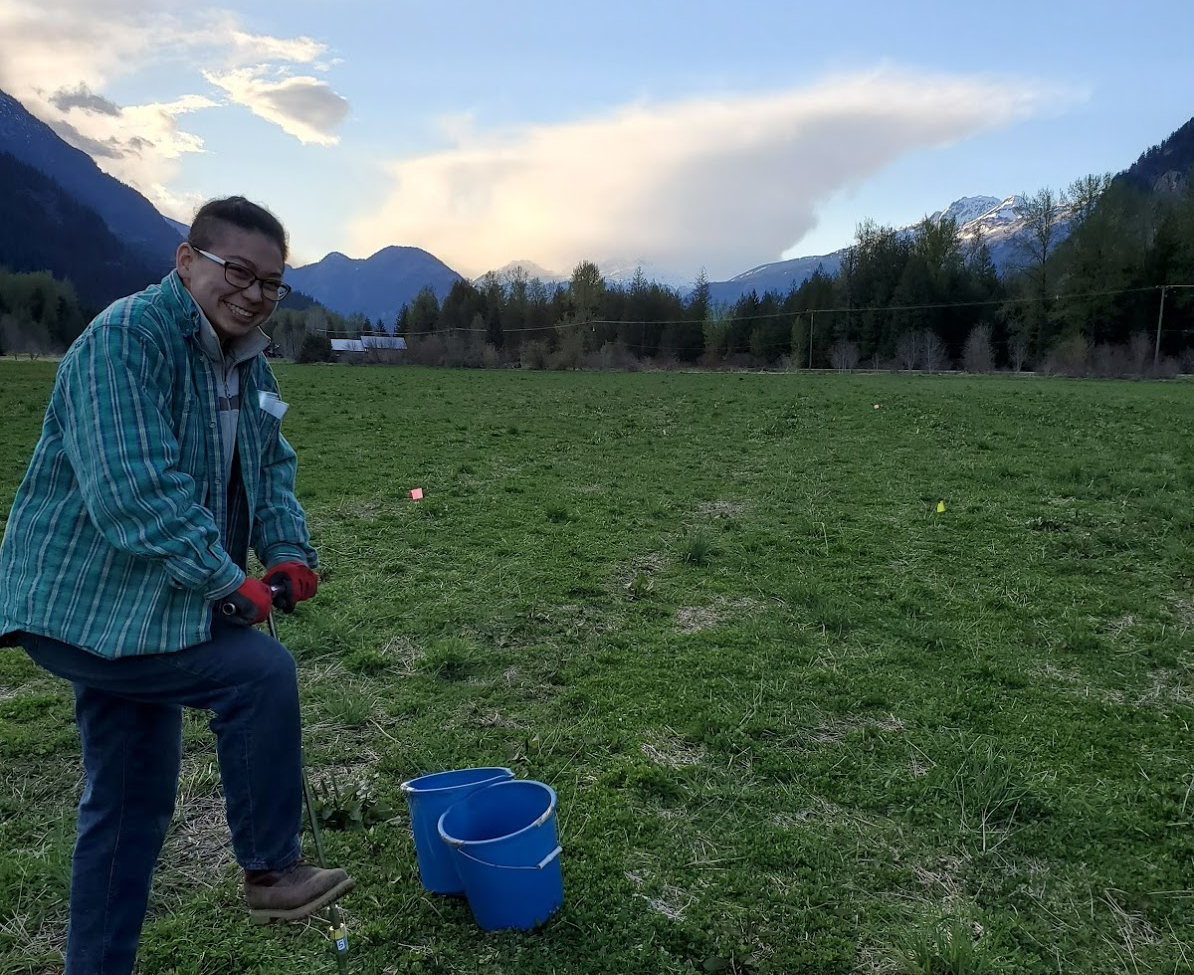
Climate Resilient Vegetable Farming
SAL’s Climate Resilient Vegetable Farming research project is studying the interactions between organic nutrient management and water issues (e.g. too much, too little, wrong timing) on organic farms. Increased fall and spring precipitation shortens the soil workability time window, thus shortening the growing season and increasing the challenge of establishing and incorporating cover crops as part of a nutrient management strategy.
Raelani Kesler, Master of Science student, explained that the Climate Resilient Vegetable Farming research project hopes to quantify the impact of three alternative approaches to soil management: fall application of organic amendments, tile drains, and overwinter tarping. Silage tarps are increasingly being used to cover soil in places where it is difficult to establish or maintain a cover crop. With tarping, the soil is protected from erosion, but there are no inputs from cover crop biomass. Drainage tiles are being used to manage moisture but this too can lead to losses. The project is currently gearing up for its second field season.
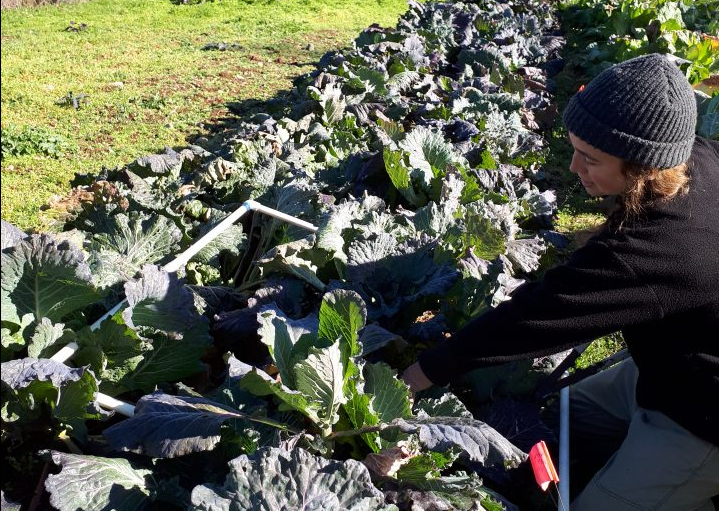
Knowledge Sharing
The benefit of having the research on-farm extends beyond the access to regional data. Including farmers as partners allows for horizontal learning between both researchers and farmers, as well as supporting farmer-to-farmer knowledge exchange.
Amy Norgaard, a Master of Science student in SAL, spoke to the knowledge-sharing elements of the project. “I was able to be physically on farm having conversations with the farmers and learning from them about what they do and why, and was able to incorporate each farm’s unique amendment strategy into the study,” she said. “Farmers were able to see how their ‘business as usual’ compost and fertilizer applications compared to strategies targeting N and P crop demand, and also saw how their strategies compared to other farmers.”
Chris Bodnar, a project farm partner, said “The on-farm research and collaborative sharing of results was incredible for us to be part of”.
Although not a direct goal of the program, Norgaard shared that getting out and having conversations with partner farmers allowed her to gain useful information that she was then able to share across the community. “I really enjoyed the relationship building and knowledge sharing aspects of the program and wish I could continue doing it even though my two-year research project has come to an end. I think there is a lot of value there.”
In the Kootenays, SAL was able to partner with Rachael Roussin of the Kootenay Boundary Farm Advisors (KBFA) program. KBFA has been providing extension services for farmers for several years, and Kesler said the established relationships and close contact Rachael had with growers made it much more feasible to conduct regional field trials in the Kootenays. For example, Rachael was able to reach out to her network to recruit farm research partners. Her existing relationships and proximity to the growers made it easier to check in about details, such as when they were planning on removing their tarps so she could get to the farm to take a soil sample. Coordinating on this level would be very difficult to do from UBC and so having a partner like KBFA opens up regional on-farm research possibilities that wouldn’t exist otherwise. Kesler hopes to see more regions across BC adopt similar extension programs that would allow for these forms of university-farm partnerships to become more widespread.
Similar Approaches Happening Across Canada
The topic of collaborative on-farm research with mother-sister sites, and the many benefits of approaching agricultural research this way, also came up at a recent meeting I attended for provincial and federal organic specialists. The Quebec organic specialists spoke highly of the mother-daughter model to ensure a constant exchange and mutual learning between farmers and researchers.
In 2019 Agriculture and Agri-Food Canada announced a new Living Laboratory Initiative. Similar to UBC’s SAL lab, it will use mother-sister sites as part of a “collaborative approach to research that will bring stakeholders together on working farms to develop, test and adopt new practices and technologies that will tackle important environmental issues.”
You can find more details about this announcement here.
Further reading:
Organic Vegetable Nutrient Management Project
BC’s New Agricultural Environmental Management Regulation
The Organic Vegetable Nutrient Management Project and the Climate Resilient Vegetable Farming Project were funded in part by 1) the Farm Adaptation Innovator Program (FAIP), a program through the BC Climate Action Initiative and funded by the Canadian Agricultural Partnership, a five-year federal-provincial-territorial; and 2) the Organic Science Cluster 3 under the AgriScience program of Agriculture and Agri-Food Canada.
Emma Holmes is the Organics Industry Specialist with the BC Ministry of Agriculture, Food, and Fisheries. She studied Sustainable Agriculture and Soil Science at UBC, and then farmed on Salt Spring and worked on a permaculture homestead on Orcas Island. She now lives in Vernon with her partner and toddler, and loves spending time in the garden. She can be reached at: Emma.Holmes@gov.bc.ca
Feature image: Carmen Wong weighing amendments (compost and organic fertilizer) to apply to research plots on an organic vegetable farm in the lower Fraser Valley for the UBC nutrient management regional field trial study. Credit: Amy Norgaard.


